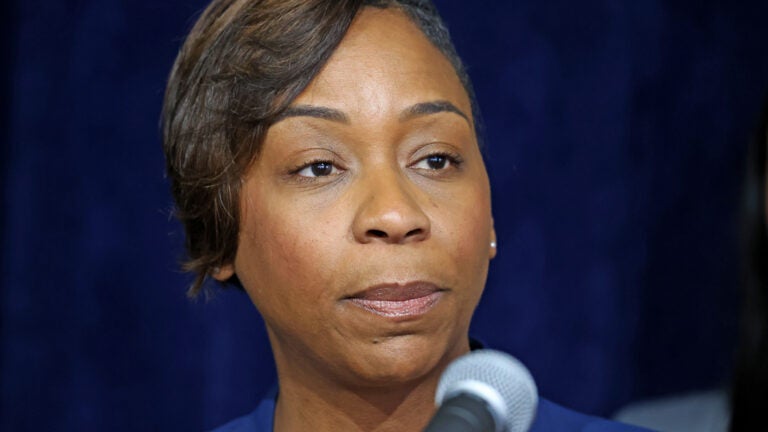Local News
The attorney general spoke with Jon Keller on WBZ’s “Keller at Large” Sunday morning.

Massachusetts Attorney General Andrea Campbell appeared on WBZ’s “Keller at Large” with Jon Keller Sunday to discuss her lawsuits against the Trump administration, the constitutionality of Massachusetts State Auditor Diana DiZoglio auditing the state Legislature, and her recently-introduced STUDY Act that would ban cellphones in school.
“Our lawsuits are working”
Keller asked Campbell, who has sued the Trump administration in federal court at least a dozen times since he took office in January, about her approach to litigation.
“We are heading in a dangerous direction,” Campbell said, emphasizing the importance of the country having “a legal system that is working” in order to begin to tackle other issues like affordability.
But, she said, “What we know to be true is that our lawsuits are working,” and affirmed her commitment to continuing to use litigation.
Most recently, on Friday morning, she co-led 16 attorneys general in suing Health and Human Services Secretary Robert F. Kennedy Jr. and Director of the National Institutes of Health Jay Bhattacharya over biomedical research funding cuts. She was also part of a group of 21 attorneys general led by Rhode Island Attorney General Peter Neronha in suing the Trump administration Friday afternoon over budget cuts to three agencies that help oversee museum and library funding.
Prior to the Friday lawsuits, Campbell joined 18 other states Thursday evening in suing the administration over its new executive order on voting rights, which she described as “plainly unconstitutional.”
“We’re getting unlawful action over and over again, blatant disregard for the constitution,” Campbell said to Keller.
Support for DiZoglio
When Massachusetts voters submitted their ballots in November, almost 72% voted yes on Question 1, which would give DiZoglio, and future state auditors, the power to audit the Legislature. Proponents, including The Boston Globe’s editorial board, criticized Massachusetts for having one of the “least transparent legislatures in the country” and said this would shine light on its actions and happenings, while opponents argued that the auditor having this power would violate the Massachusetts constitution’s separation of powers.
Keller pressed Campbell, who supported the ballot question, on a statement made by Lawrence Friedman, a constitutional law professor at New England Law Boston. Friedman, who testified Wednesday in a Senate subcommittee on the implementation of the audit, expressed his concern over fairness and productivity.
“There lies the possibility that an unscrupulous auditor would use the opportunity to audit these functions as a wedge with which to subject the General Court to continuous audit requests, and should the Legislature fail to respond to the auditor’s satisfaction, litigation over those requests, which ultimately could undermine the Legislature’s ability to conduct its constitutionally assigned business on its own terms,” Keller quoted Friedman.
Keller said the Legislature “doesn’t like” DiZoglio and “doesn’t want her,” but Campbell maintained her support for the measure, adding that there are “constitutional limitations on what the auditor can audit.”
She said she would “keep pushing” on DiZoglio’s behalf.
“Non-disruptive” learning environments
Campbell introduced legislation in January that would prevent Massachusetts public school students from having access to their cellphones and other personal electronic devices during the school day.
The Safe Technology Use and Distraction-Free Education Youth Act, known as the STUDY Act, would place “bell-to-bell” restrictions on phones to reduce classroom distractions and improve teens’ mental health.
She expressed her concern over the mental health “epidemic” and attributed it in part to an uptick in bullying and harassment on social media.
“I actually think it’s the issue of the day for our kids,” Campbell said. “We have to protect them.”
Campbell said the STUDY Act has received support from school districts, teachers, parents, and even students, and that it would “complement” the state’s existing litigation against TikTok and Meta.
Some districts have already independently taken action, including Lowell, Brockton, and Methuen, but the statewide act has yet to become law.
“Young people are in schools to learn,” Campbell told Keller. “We want a positive, non-disruptive environment.”
Sign up for the Today newsletter
Get everything you need to know to start your day, delivered right to your inbox every morning.

